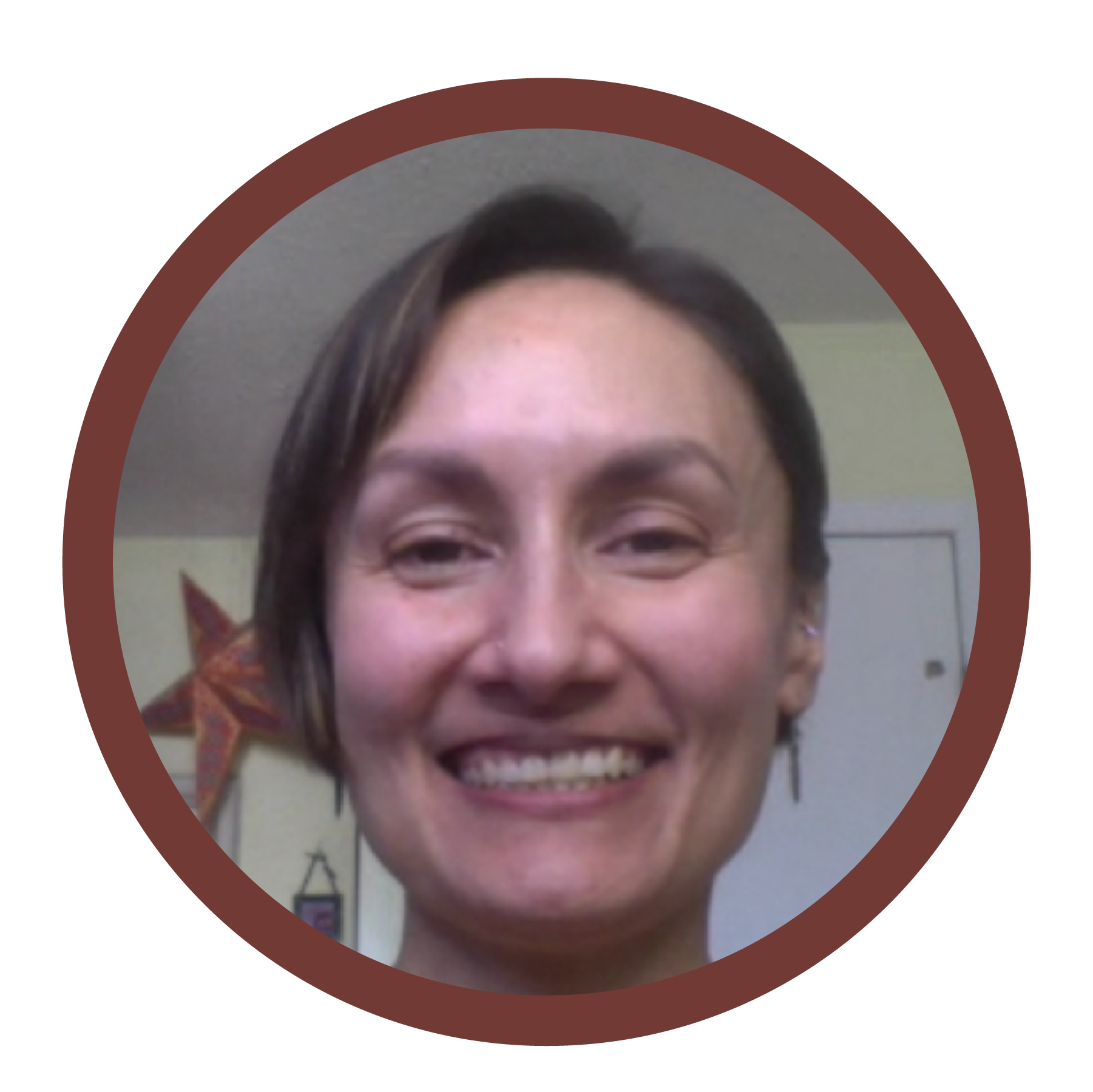Kristie Billard
I am from Calgary; I was born and raised here. Calgary has a great arts scene; my husband plays in a band, so we love to go out and see musicians play. We love Folk Fest and all the stuff in the summer. I love how beautiful it is in the summer. I think it's because of my heritage, but I just feel a pull to this land.
My journey towards reconciliation has been my whole life. I am a third-generation Canadian European on my mother's side. On my father's side, his mother was First Nations from TsuuT'ina and his father from Jamaica. I was estranged from my Indigenous side of my family. I wasn't raised by my father; I was raised by my white Canadian European mother. I grew up in the eighties, so the climate towards Indigenous people at that time was not very friendly. I grew up with a lot of racism, a lot of stereotypes - and I believed them. I had no one telling me otherwise in the education system, in all of the systems that should have been telling us, "Hey, that's not how it is….this is actually how it happened." I wasn't exposed to any of that.
After I had kids, I started questioning more of that side of me. They are now teaching our kids within the school system minimal stuff, but some Indigenous truths. It makes them question, "Mom, aren't you First Nations?" and I realized I couldn't tell them anything about it. It made me feel even more ashamed than the racism and stereotypes thrown at me as a child. It was my wanting to know about my culture as well wanting to be able to pass it on to my children.
I started doing minimal stuff...researching things, watching things on YouTube. I think the apology for residential schools made me really question what was going on in our world and how we could let things like that happen. Through that, I kind of reconnected with my dad, trying to find out more about my Indigenous side. My whole life, I was angry with him for leaving. There were addiction issues in his family, which I was sheltered from. But I began to realize the reason for the addiction issues and why that was happening….My paternal grandmother was in a residential school and enfranchised from marrying a non-Indigenous man; she lost her Indian status. Stuff like that made me realize that it was not their fault; it was the cards that they were dealt. Just that realization made my empathy spread to the rest of my community, and ask, "How did this happen? How do we get out of this?"
I started by going back to school, taking Indigenous classes, and educating myself. I'm in the healthcare system right now, so I know there's a need for equality, fewer stereotypes and less racism within that system. I'll be going into another healthcare system sector when I am done school and will hopefully work on that. Build something better for Indigenous women and children to stop the shame. To build that healing place, where they have what they need to heal. I'm just going to try to do better for my people.
This Anitopisi program is amazing. We are working on stuff that I feel is so important, and I wouldn't know where to start if I didn't have that guidance. Some of the things that come up are really difficult and emotional, and I wouldn't do it if I didn't have that push to work on it. It's a group of really awesome women. I am hoping that maybe we can change the world...or at least part of it.
I feel like it is coming...things are slowly changing within the government systems, but it definitely needs a push. There is hope. When you look for it, there are all these really great grass-root movements happening. I see hope within other Indigenous people; hope they have held onto for five hundred years while dealing with really horrible situations. Through it all, they still manage to be these beautiful, lovely people...that gives me hope.

